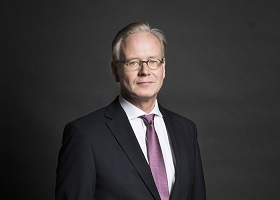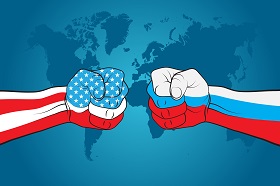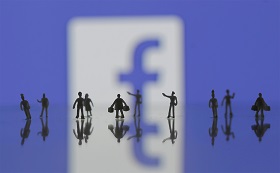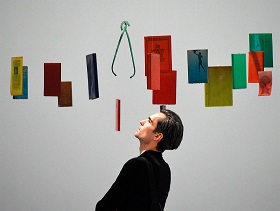With media outlets being the center of attention recently, one has started to doubt what news nowadays is, what media to believe and what power they possess. RIAC Website Editor Maria Smekalova discussed with Eric Gujer, Editor-in-Chief at leading German language quality newspaper Neue Zürcher Zeitung, the crises media face, the choices readers have to make as well as elections coverage and Buzzfeed phenomenon.
With media outlets being the center of attention recently, one has started to doubt what news nowadays is, what media to believe and what power they possess. RIAC Website Editor Maria Smekalova discussed with Eric Gujer, Editor-in-Chief at leading German language quality newspaper Neue Zürcher Zeitung, the crises media face, the choices readers have to make as well as elections coverage and Buzzfeed phenomenon.
At the moment everyone is concerned with the crisis mass media face. Has is affected Neue Zürcher Zeitung?
There are different discussions about the decline of media. First comes economic discussion: of course, we all see that there is a reduction of the print advertisement. And that is a big problem for us because, traditionally all heritage media have been completely dependent on it. We now have to find ways to replace that, which means that we have to enlarge our audience and charge them for reading our articles. That is the economic discussion.
The second track of the discussion revolves around fake news. I do not think that fake news are so important for most media. Look, every news we publish has been vetted not by an algorithm, not by a robot but by a journalist. And we have enough journalists, enough manpower, and enough resources to check properly what we publish. So, I do not think that we can be taken hostage by fake news producers as Facebook can be.
But underlying to the fake news problem is the discussion about trust in the media. In Germany, for instance, large part of the population feels that they can’t trust the media anymore. There is a new word in English “lügenpresse,” that means “media which lie”. And even in the U.S. and especially among Trump’s supporters it is well understood what “lügenpresse” means. People feel that the media are biased, that they don’t deliver a full picture, that they only want to discuss certain items and others not. And if we talk about Germany during the migration and refugee crisis two years ago, the media was indeed biased. They didn’t want to talk about repercussions of that influx of refugees, about the possibility of terrorists coming in by the refugee trail, about longer economic impact of that crisis. They simply didn’t want to discuss that. And therefore people developed the feeling of distrust towards them. And I think that, apart from the economic challenges we face, the crisis of trust is the most important thing we have to address as media.
It seems like the situation in Russian media is much alike to what you have said about Germany. People feel that instead of addressing domestic issues the media is trying to distract attention using international events which do not produce as much controversy.
I think that you can’t compare the situation in the West with that in Russia, where you have so many state controlled media, and the most important source of information is television. And we all know that the NTV now is nothing that it was in the 90’s. It then was a completely independent channel which reported openly on the First Chechen War. That doesn’t exist anymore. So if there is a crisis of trust in the Russian media, the people don’t have many opportunities to turn to different sources of news. Everything they have is the internet and a small number of printed newspapers. “Nezavisimaya gazeta” is good, but it does not count for much on the whole.
The situation is really changing now though. What I find interesting is the influence of demographic aspect on the choices people make when it comes to media outlets. People who live in smaller cities predominantly watch TV, that is where they get their information from. Whereas those who live in the capital and in larger cities are very careful when choosing a source of information. Most of the information outlets do have their preferences, and in the U.S. it is basically the same. Although the variety of channels is a lot bigger, the picture the audience gets is also quite limited.
May I interrupt you here? In the United States, media used to clearly separate opinion from facts and then report completely neutral information. It is new for the U.S. to have media that bluntly makes opinions and facts, which obviously appeals to the audience. In Europe, we have never had such strict separation. So we are more used to the fact that journalists have their own opinions. So, in Europe there is no problem of choice. To me it seems that America is one extreme and Russia is another, with Western Europe being the man in the middle.
There is a lot of speculation about the role of media in the elections recently. Do you think that this is actually a fact? Can the foreign media influence the outcome of an election in a certain country?
I think it is a fact. Especially with Russia trying to influence the election outcomes in France and in the United States by supporting Donald Trump. Still, I think that this fact is completely over exaggerated.
If you look at the percentage of the audience that reaches from different country you can always evaluate that. The percentage of people in the U.S. reading our news is not very large, I assume.
Maybe it’s a little bit different in Germany, where they have quite a lot of population originating from Russia and Kazakhstan having a German passport, so called Russian Germans. We see that they, at least the older ones, only tuned for Russian channels. That is where they get their perception of reality from. They are the ones that really can be influenced. But when it comes to the U.S. or France the possible influence is completely over exaggerated.
What do you think a journalist nowadays should be like? Journalism used to be more about the investigation, whereas now it is about coming up with a catchy headline to get the most views.
I don’t think it is about having the most extreme headline and getting the juiciest piece of work. It may be partly true about the internet media as they are completely dependent on internet advertising. As a result, they have to attract people by cats and Kardashians, like Buzzfeed does.
When it comes to the quality media, it is a completely different game. We charge our consumers for our content. And we can only do so if we give them the guarantee that our content is fact based, not exaggerated and not only clickbait, but is real news. So, as quality media, we have a completely different business model. We do not want to reach the largest possible audience. We want to reach the largest possible audience which is willing to read our content. And that makes a big difference and gives us a chance to survive in the market. There is a chance that there will be two different business models for media outlets: the ‘buzzfeeds’ of the world which are dependent on the juiciest headlines, and us who are dependent on the trust of our readers and the credibility of the things we do report.
Where do you read news? On websites or in newspapers? Do you watch TV?
No, I do not watch TV, I don’t even have one. I’m a heavy user of Netflix for the entertainment. And if it comes to information, I do read so many newspapers. I have to read our largest competitor in Switzerland “Tages-Anzeiger” but I also read “Frankfurter Allgemeine Zeitung” and “Südduetsche Zeitung” because I am specialized in Germany, I do read The Financial Times. I am a subscriber of New York Times and I do read Washington Post on the Internet. So maybe I am not the ordinary media consumer.
What book has produced a big impression on you recently and you would recommend?
There is a book by Richard Haass, the President of the Council on Foreign Affairs in the United States, “A World in Disarray: American Foreign Policy and the Crisis of the Old Order”. It really did impress me. I would definitely recommend it.








